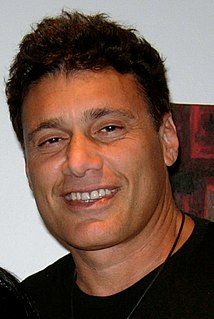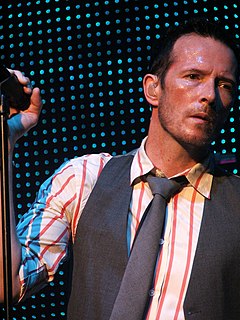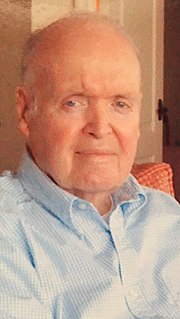A Quote by Pauline Kael
We read critics for the perceptions, for what they tell us that we didn't fully grasp when we saw the work. The judgments we can usually make for ourselves.
Related Quotes
The Constitution exists precisely so that opinions and judgments, including esthetic and moral judgments about art and literature, can be formed, tested, and expressed. What the Constitution says is that these judgments are for the individual to make, not for the Government to decree, even with the mandate or approval of a majority. Technology expands the capacity to choose; and it denies the potential of this revolution if we assume the Government is best positioned to make these choices for us.
The burden God places on each of us is to become who we are meant to be. We are most fully ourselves when Christ most fully lives in us and through us. The mother shines brightest with her child in her arms, the father when he forgives his wandering son, and the artist when he or she is drawing attention to grace, by showing the pinprick of light overcoming the darkness in the painting, or the story, or the song. The world knows darkness. Christ came into the world to show us light. I have seen it, have been blinded by it, invaded by it. I will tell its story.
You just have to work, we all have to work really hard to take care of ourselves and feed ourselves good information, just like we feed ourselves good food. Feed ourselves good books and good messaging and the things that make us feel like we can be connected with ourselves and others in a deeper way.
Let us fix our attention out of ourselves as much as possible; let us chase our imagination to the heavens, or to the utmost limits of the universe; we never really advance a step beyond ourselves, nor can conceive any kind of existence, but those perceptions, which have appeared in that narrow compass.
Women in America read 'lifestyle' pages which are really glorifications of shopping. They teach us we must veil ourselves in make-up to be loved. And we willingly take the veil, thinking ourselves freed by it. Make-up is no more optional for us than the veil is for Arab women: it is our Western version of the chador.
If the book we are reading does not wake us, as with a fist hammering on our skull, why then do we read? So that it shall make us happy? Good God, we should also be happy if we had no books, and such books as make us happy we could, if need be, write ourselves. But what we must have are those books which come upon us like ill fortune, and distress us deeply, like the death of one we love better than ourselves; like suicide. A book must be an ice-axe to break the sea frozen inside us.




































